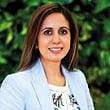Innovation and personalisation drive student achievement in UAE schools
Schools pave the way for academic excellence and future career success in students

Studies have proven that the foundation of success in life and career is laid in the early years in schools, where children are encouraged to learn and explore in a safe and happy environment. These formative experiences are crucial in shaping a child’s future.
To set children up for success, schools in the UAE have consistently led the way in driving both their academic and social achievements. Employing engaging teaching methods, promoting strong parent-teacher collaboration, and offering a future-ready curriculum, schools ensure they effectively build a strong foundation for students to succeed in both their academic pursuits and future careers.
Innovation is at the core of their efforts, creating an environment where every stakeholder is committed to creative thinking and a holistic education. This approach emphasises academic excellence while prioritising the development of transferable skills.

“We embrace the teaching methods that best fit the subject and developmental stage of the student. From the early learning centre, where students experience play-based education, to astrophysics in high school, a visitor to ASD will witness relevant and purposeful teaching and learning,” says Sheryl Gruber, Associate Superintendent for Teaching and Learning at the American School of Dubai (ASD).
Leading Indian-curriculum school, Global Indian International School (GIIS) Dubai places the child at the centre of their learning journey, offering enriching experiences that go beyond textbooks.
“Our Global Centre for Innovation and Entrepreneurship (GCIE) and Quality Circles (QC) projects engage students in hands-on learning, fostering creativity and problem-solving skills,” says Antony Koshy, Principal.

GIIS Dubai’s innovative Robotics-Innovation-STREAM-Exploration (RISE) curriculum emphasises holistic development, incorporating elements like Kaizens for continuous improvement.
“Platforms like GIIS Radio, provide opportunities for self-expression and communication skill development. We promote cross-curricular links, allowing students to see connections between subjects and apply their knowledge in diverse contexts,” explains Koshy.
Curriculum reform for greater impact
Schools in the UAE are moving away from traditional curricula, incorporating changes to align with higher education and job market trends. By integrating interactive teaching practices and practical experiences, schools focus on future-ready curricula that promote subject knowledge, critical thinking, digital literacy, and transferable skills.
The educational approach of Taaleem, which operates 32 schools across the UAE including the newly-opened Dubai Schools Al Khawaneej, is designed to prepare students for a rapidly changing world by fostering independence and equipping them with diverse skills.
“We continually evolve our curriculum to align with the UAE’s context and integrate best practices from global educational leaders like Singapore and New York. This includes a significant emphasis on AI and technology, alongside programmes that promote debate, discussion, and financial literacy, nurturing a culture of innovation,” says Rebecca Gray, Chief Education Officer.
“With a curriculum that adapts to meet future job market demands, we are committed to producing graduates who are not only ready to enter diverse career paths but are also equipped to lead and innovate. Our approach ensures that within six years, our graduates will emerge as well-rounded, adaptable individuals prepared to contribute meaningfully in various professional contexts,” Gray adds.
ASD’s mission has always been to prepare students to adapt and contribute in a rapidly changing world. “While the school continues to ground ourselves in the best version of preparing students with foundational skills in the core disciplines, we also continually review and assess all of our offerings,” says Gruber.
“In recent years, an example of this has been working with our educators to develop a cohesive and articulated design and innovation programme, one that connects across disciplines. Another great example happened in our business classes where students became entrepreneurs and presented their plans to a panel of experts from within and outside the ASD community in the style of Shark Tank,” Gruber explains.
Meanwhile, personalised learning has come to the fore as schools implement tailored approaches to education. By catering to each child’s unique needs, aptitude, and interests, this method enhances the learning outcomes.
Glendale International School’s tailor-made learning plans for each child is aimed to meet their unique needs, strengths and interests.

“Data driven assessments like CTA4 helps us understand each student’s learning style, pace, and areas of strength and weakness. Continuous formative assessments also provide insights into students’ progress and learning gaps,” says Jasmit Kang, Principal.
Based on this data, Glendale creates individualised learning plans. “These plans include differentiated instruction, where teachers modify their teaching methods and materials to cater to diverse learning needs. For example, visual learners might use graphic organisers, while kinaesthetic learners engage in hands-on activities,” Kang explains.
Engaging with the wider education community has also emerged as a critical component of schools’ efforts in driving excellence. By partnering with experts in various areas, schools create a supportive network that enriches student learning.
“At ASD, we highly value educator collaboration and professional learning. Our schedule allows time for teachers to plan together within their subject areas and across their school division. We are also fortunate to have internal experts supporting our teaching practices, such as curriculum coordinators and technology integrators,” says Gruber, adding, “By utilising the collective professional expertise of the learning community, we are able to adopt best teaching practices for our learners.”
Simultaneously, feedback and assessment methods in schools have also undergone transformations, with many schools in the UAE implementing targeted strategies to support students experiencing challenges in achieving academic success.
Solutions for success
GIIS Dubai implements various measures to support students facing academic difficulties, including personalised tutoring, counselling services, and individualised education plans (IEPs).
“We offer after-school programmes, mentorship, and targeted interventions for subjects where students need help. The school also works closely with parents and utilises assessments to monitor progress, ensuring that each student receives the necessary resources and support to succeed academically,” says Koshy. ■
Building bridges
Schools help ease the transition to university by offering high school students comprehensive support including academic guidance, career counselling and skill-building opportunities. Alumni networks also help students by providing mentorship and sharing various professional development tools.

“American School of Dubai (ASD) students have many opportunities to hear from, and engage with, ASD alumni from all over the world. These engagements, whether through workshops, internships, or speaking events, often provide words of advice and networking opportunities that undoubtedly provide experiences that prepare students for their next journey,” says Craig Tredenick, Director of Admissions and Advancement.
Networking with an alumni network offers numerous benefits to students, including leads on internships and part-time opportunities, information on new courses and degrees, and even job openings.
Gautam Goenka, alumnus of GEMS Modern Academy (GMA), and Chairman – Modern Alumni Association (Batch 2002), highlights how the school’s alumni network benefited his personal and career growth.

“Interacting with those who passed through the same educational institution, was of great benefit to me. The shared histories and knowledge of the school contributed to smoother transitions into university and workplaces,” says Goenka, who is currently working as Global Learning Leader at GE Healthcare.
“GMA’s alumni career panel discussions as well as the alumni university discussions both can help students get a sense of what the real world looks and feels like to current students,” he adds.









